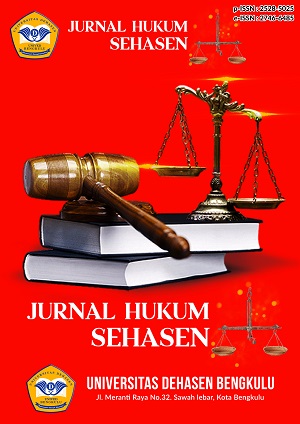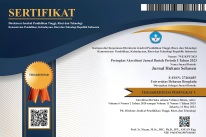The Binding Force Of A Deed Not Read By A Notary
Abstract
This study aims to examine the validity of notarial deeds that are not read out in the presence of the parties and witnesses, as well as to analyze and determine the role of the Notary Supervisory Council in terms of enforcement under the laws of the Republic of Indonesia related to the behavior of notaries who do not read out notarial deeds that they have made. This research is a qualitative normative legal study, examining the legal norms pertaining to the validity of notarial deeds that are not read out by notaries in the presence of the parties and witnesses at the time of signing the deed minutes. The study's findings revealed that it is the responsibility of the notary to guarantee the veracity of the day, date, month, year, and hour indicated at the commencement of the notarial instrument. This serves to substantiate the fact that the parties have appeared and affixed their signatures on this document, and that all procedures have been conducted in accordance with the stipulations outlined in the UUJN. In the event that a notarial deed is not read aloud to the parties and witnesses due to the negligence of the notary, it is undoubtedly in contravention of the provisions set forth in the UUJN, which will undoubtedly have legal implications for both the deed and the notary in question. The failure of a Notary to read a deed aloud will inevitably result in a reduction in the evidentiary value attributed to the deed in question, resulting in it becoming akin to a deed written under one's own hand as per the stipulations outlined in Article 16, paragraph 9 of the UUJN.
Downloads
Copyright (c) 2024 Irene Mariane

This work is licensed under a Creative Commons Attribution-ShareAlike 4.0 International License.






